News archive 2017
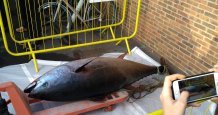
Tuna dissected by university scientists
A tuna accidentally caught off Devon has been dissected by scientists at the University of Exeter.

First ESI Think Tank held on “The Anatomy of Adaptation”
The first ESI Think Tank took place on Friday 24 November, tackling the subject of “The Anatomy of Adaptation”.

ESI researcher awarded prestigious fellowship
Dr Stineke Van Houte from the University of Exeter’s Environment and Sustainability Institute has been awarded a prestigious BBSRC Future Leader Fellowship entitled: "CRISPR-Cas9 gene drives to fight antimicrobial resistance".

First ESI Think Tank held on “The Anatomy of Adaptation”
The first ESI took place on Friday 24 November, tackling the subject of “The Anatomy of Adaptation”.

ESI researcher awarded prestigious fellowship
Dr Stineke Van Houte from the University of Exeter’s Environment and Sustainability Institute has been awarded a prestigious BBSRC Future Leader Fellowship entitled: "CRISPR-Cas9 gene drives to fight antimicrobial resistance".

Lighting revolution may increase light pollution
A study of pictures of Earth by night has revealed that artificial light is growing brighter and more extensive every year.

Diversity and immigration increase productivity in microbial communities
Natural selection quickly turns a melting pot of microorganisms into a highly efficient community, new research shows.

Communities Secretary Sajid Javid visits Penryn Campus
Key senior Government members visited the Penryn Campus to strengthen their understanding of the challenges and opportunities for Cornwall arising from Brexit.

Project develops next generation of offshore renewable energy technology
World-leading researchers from the University of Exeter will collaborate with counterparts in China on a pioneering new project to develop the next generation of offshore renewable energy (ORE) technologies.

Buildings to generate their own power with innovative glass blocks
Buildings could soon be able to convert the sun’s energy into electricity without the need for solar panels, thanks to innovative new technology.

‘Inefficient’ sailing fleet keeps oyster fishery alive
Oyster stocks in a Cornish fishery are sustained thanks to “inefficient” traditional fishing methods, new research suggests.
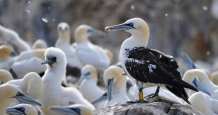
Grown-up gannets find favourite fishing grounds
Like humans, some birds can spend years learning and exploring before developing more settled habits.

Heritage Futures event marks project midpoint
The University of Exeter’s Environment and Sustainability Institute invited partners and collaborators of the 4-year research project Heritage Futures to mark the project’s midpoint.

Cornwall businesses create a buzz for the environment
Businesses from different sectors including hospitality, food and drink and tourism explored solutions to help reverse bee declines.
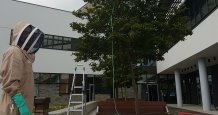
Bees move in at university after swarming on to campus
A swarm of bees that turned up on a university campus has been allowed to stay.

Prize for ‘outstanding’ University of Exeter ecologist
A University of Exeter ecologist has won a prestigious prize for his outstanding achievements.
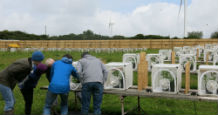
Connecting the Curriculum - ESI Teacher Affiliate Day
Teachers and technicians from Cornwall’s post-16 sector spent a day with Kevin Gaston's research group for the first ESI Teacher Affiliate Day..
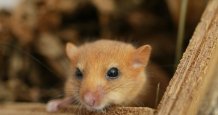
Drowsy dormice doze into decline
Britain’s population of hazel dormice has declined by more than 70%, new research shows.

‘BEEHAVE’ project wins innovation award
A project which helps protect bees has won the 2017 BBSRC Innovator of the Year award for Social Impact.
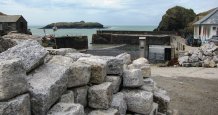
‘Let some heritage sites go’, says academic
Some heritage sites cannot be preserved and should be allowed to decay, a new book argues.

Vice-President of Royal Society visits University of Exeter
One of the UK’s leading scientists has praised the “energy, commitment and enthusiasm” of researchers at the University of Exeter, during a special visit.
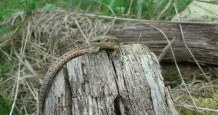
Global warming kills gut bacteria in lizards
Climate change could threaten reptiles by reducing the number of bacteria living in their guts, new research suggests.
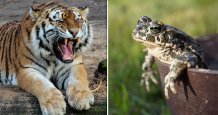
Volunteers needed to help save ‘less popular’ species
Which species would you save from extinction: Elephants or newts? Toads or tigers?

Environment and Sustainability Institute appoints new Director
Professor Juliet Osborne has been appointed as the new Director of the University of Exeter’s flagship Environment and Sustainability Institute (ESI).
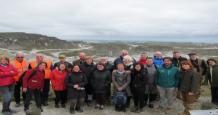
Creativity and Stewardship in Changing Landscapes
Mid-Cornwall’s china clay country has seen many changes over the last several hundred years, and it continues to change along with the clay industry and the surrounding communities.
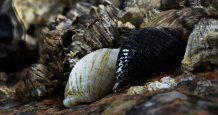
Light pollution has serious impact on coastal wildlife, research shows
Scientists have recognised for some years that light pollution is a growing phenomenon that impacts on the behaviour and success of many animals.

Cornish pupils given insight into ‘why energy matters’ at Environment & Sustainability Day
Dozens of schoolchildren from across Cornwall were given a fascinating insight into the relationship between energy and the environment, at a special event held at the University of Exeter’s Penryn Campus.

6000 Flowers Arts Project creates a buzz for bumblebees as Cornwall welcomes the first day of Spring
A new art show launched this week at The Environment and Sustainability Institute’s Creative Exchange as Cornwall welcomed the arrival of Spring.
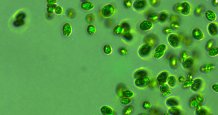
The foundation of aquatic life can rapidly adapt to global warming, new research suggests
Important microscopic creatures which produce half of the oxygen in the atmosphere can rapidly adapt to global warming, new research suggests.

Breeding oilseed rape varieties for pollinator-friendly traits
Amounts and sugar content of nectar vary between commercial varieties of oilseed rape (OSR) produced with different breeding systems, when tested in the glasshouse.

European funding launches Marine-i to provide support to marine businesses in Cornwall and the Isles of Scilly
Up to £6.8m of European Regional Development Funding (ERDF) has been secured to develop marine technology research, development and innovation activities in Cornwall and the Isles of Scilly.
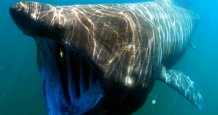
Planned protection area would help basking sharks
A proposed Marine Protected Area (MPA) off Scotland’s west coast would help basking sharks, researchers say.
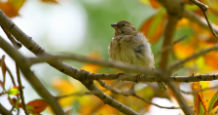
Watching birds near your home is good for your mental health
People living in neighbourhoods with more birds, shrubs and trees are less likely to suffer from depression, anxiety and stress, according to research.
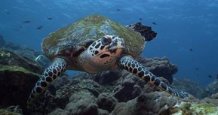
Exeter helps protect Myanmar marine life
A new plan to protect Myanmar’s diverse marine life has been announced.
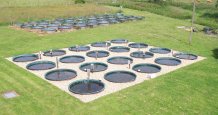
Warming ponds could accelerate climate change
Rising temperatures could accelerate climate change by reducing the amount of carbon dioxide stored in ponds and increasing the methane they release, new research shows.
__feat_218x115.jpg)
Basking sharks seek out winter sun
The winter habits of Britain’s basking sharks have been revealed for the first time.

Gene editing could help tackle cancer and inherited diseases
Gene editing techniques developed in the last five years could help in the battle against cancer and inherited diseases.
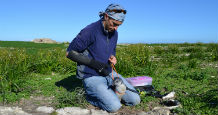
Climate change and fishing create ‘trap’ for penguins
Endangered penguins are foraging for food in the wrong places due to fishing and climate change, research led by the University of Exeter and the University of Cape Town has revealed.
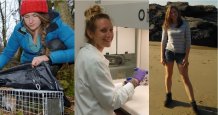
Penryn research excellence illustrated by competition success
Penryn PhD students are celebrating after sweeping the board at a high-profile research competition.
